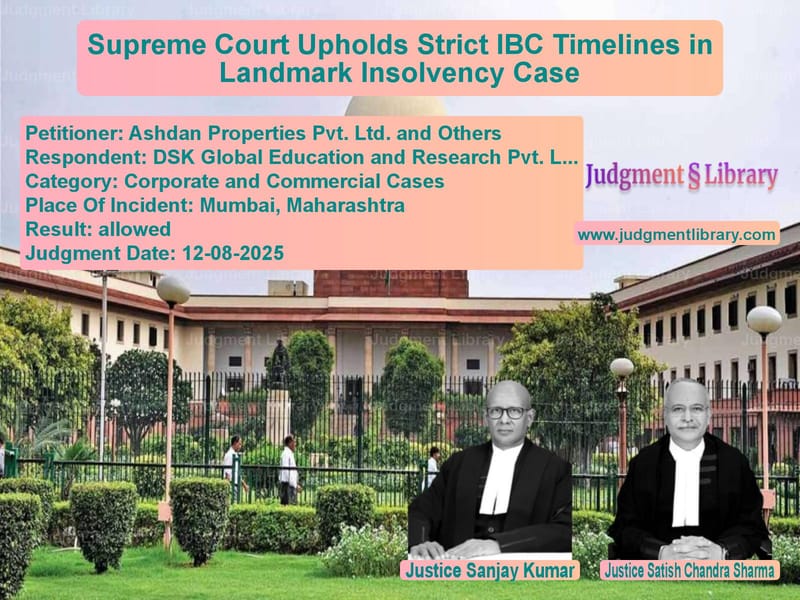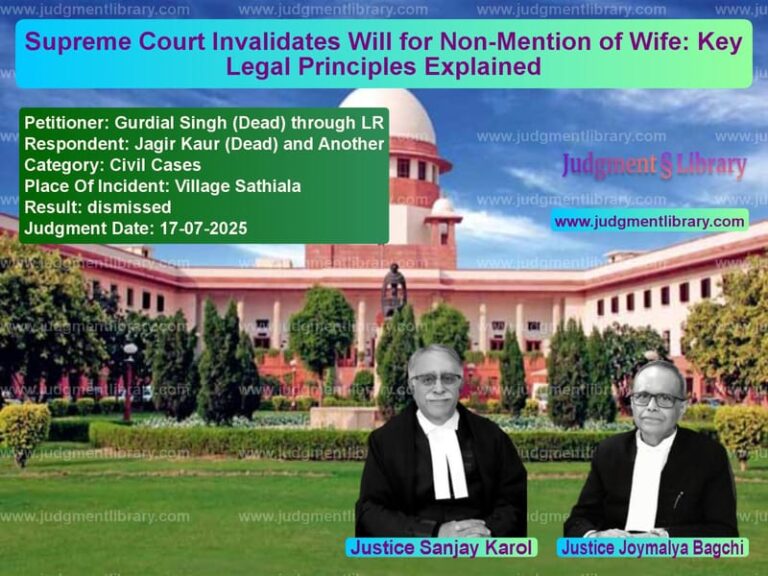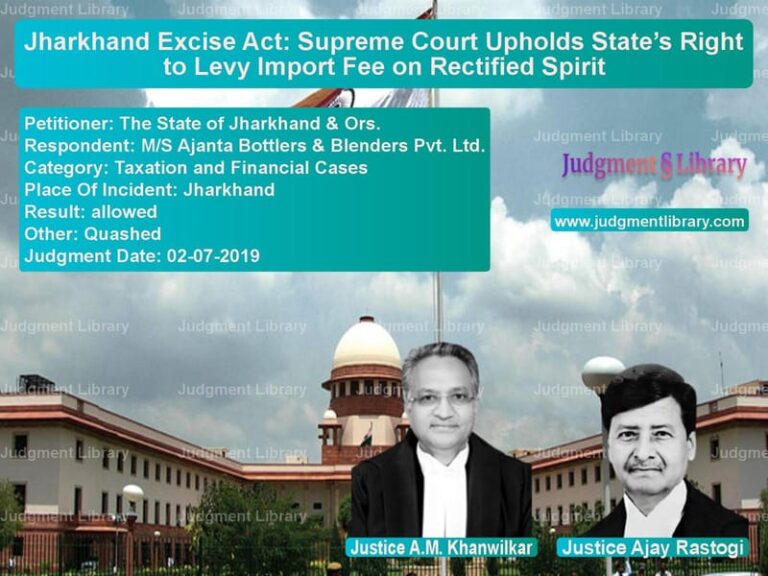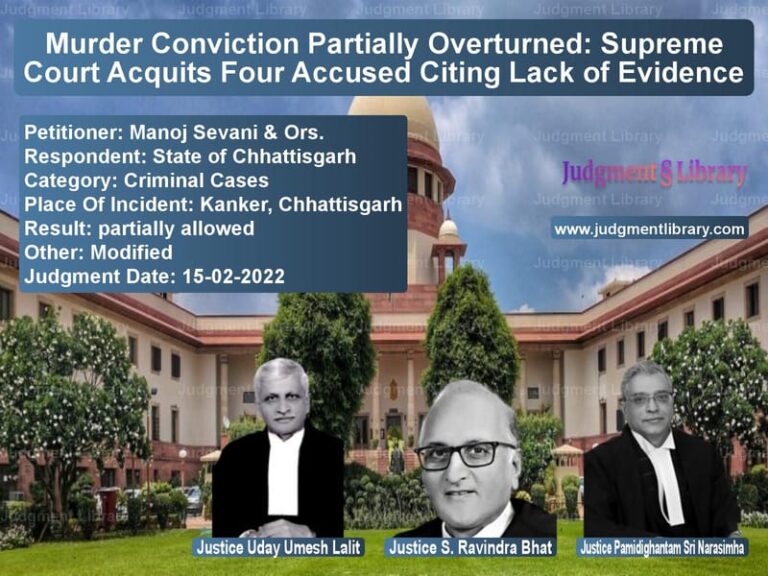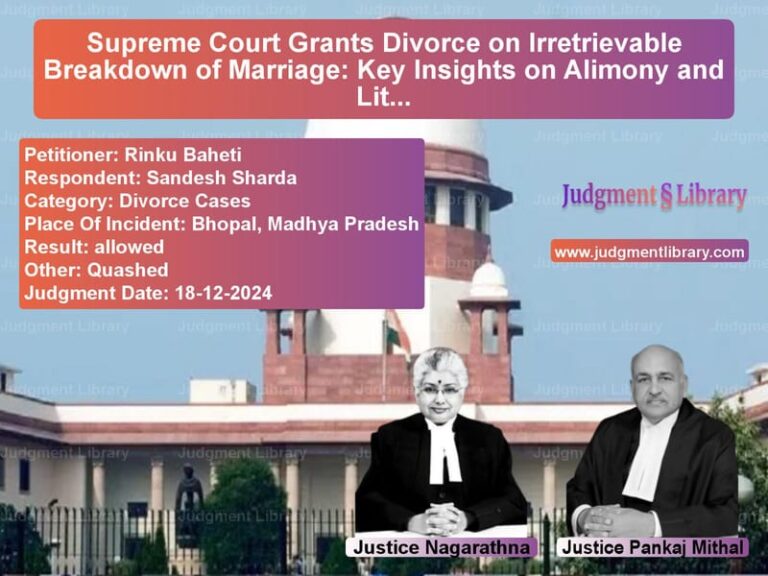Supreme Court Upholds Strict IBC Timelines in Landmark Insolvency Case
In a significant judgment that reinforces the importance of strict adherence to timelines under the Insolvency and Bankruptcy Code (IBC), the Supreme Court has delivered a crucial verdict emphasizing that procedural requirements cannot be treated as mere technicalities. The case involved a complex corporate insolvency resolution process where the court had to determine whether an appeal filed before the National Company Law Appellate Tribunal (NCLAT) was maintainable given several procedural lapses.
The dispute centered around Ashdan Properties Pvt. Ltd., which had submitted a successful resolution plan for a corporate debtor. The National Company Law Tribunal (NCLT) approved this resolution plan on June 23, 2023. However, DSK Global Education and Research Pvt. Ltd., one of the respondents, challenged this approval by filing an appeal before the NCLAT on July 25, 2023.
The core legal issue before the Supreme Court was whether this appeal was filed in accordance with the strict procedural requirements mandated by the IBC and the NCLAT Rules. The court noted that “Section 61(2) of the IBC prescribes that every appeal against an order of the Adjudicating Authority, i.e., the National Company Law Tribunal concerned, should be filed before the jurisdictional National Company Law Appellate Tribunal within 30 days.” The provision allows for a condonable delay of up to 15 days if sufficient cause is shown.
The Supreme Court meticulously examined the timeline and found multiple procedural defects in how DSK Global had filed its appeal. The court observed that “It is an admitted fact that a certified copy of the impugned order dated 23.06.2023 was not filed along with the said appeal.” This was a clear violation of Rule 22(2) of the NCLAT Rules, which mandates that “Every appeal shall be accompanied by a certified copy of the impugned order.”
What made the case particularly compelling was that DSK Global had not even applied for a certified copy until August 23, 2023 – a full two months after the order was pronounced. The court noted with concern that “At that stage, i.e., when the appeal was e-filed by it on 25.07.2023, respondent No. 1 neither filed an application seeking exemption from filing a certified copy of the order nor did it file an application seeking condonation of the delay, if any, in the filing of its appeal.”
The Supreme Court relied heavily on its earlier three-judge bench decision in V. Nagarajan v. SKS Ispat & Power Ltd. and others, where it was emphasized that “The law on limitation with respect to IBC is settled and emphatic in its denunciation of delays.” The court reiterated that “The power to condone delay is tightly circumscribed and conditional upon showing sufficient cause, even within the period of delay which is capable of being condoned.”
The judgment provided crucial insights into the legislative intent behind the IBC’s strict timelines, noting that “IBC is a watershed legislation which seeks to overhaul the previous bankruptcy regime which was afflicted by delays and indefinite legal proceedings.” The court emphasized that “IBC sought to structure and streamline the entire process of insolvency, right from the initiation of insolvency to liquidation, as a one-stop mechanism.”
One of the most significant aspects of the judgment was the court’s clarification on when limitation begins to run. The court stated that “the incident which triggers limitation to commence is the date of pronouncement of the order and in a case of non-pronouncement of the order when the hearing concludes, the date on which the order is pronounced or uploaded on the website.” In this case, since the order was pronounced in open court on June 23, 2023, the limitation period started from that day itself, not from when it was uploaded on the website on June 26, 2023.
The Supreme Court also addressed the argument about the NCLAT’s discretionary powers to grant exemptions. While acknowledging that “the National Company Law Appellate Tribunal is clothed with the powers to exempt and to extend time under Rules 14 and 15 of the NCLAT Rules respectively,” the court cautioned that “such powers cannot be exercised so as to render Rule 22(2) thereof nugatory.”
The court made it clear that “Even if an appeal is entertained within the initial 30 day-period without a certified copy of the order, by granting exemption under Rule 14, it can only be for a limited period to enable due compliance with the mandate of Rule 22(2) by filing a certified copy at least at a later date and within the time stipulated by the National Company Law Appellate Tribunal.” The exemption cannot completely dispense with the requirement of filing a certified copy.
In its concluding remarks, the Supreme Court strongly criticized the NCLAT for not addressing the limitation issue, stating that “The NCLAT erred in completely brushing aside this crucial aspect which went to the very root of its appellate jurisdiction.” The court described the NCLAT’s judgment on merits as “essentially a superstructure erected on an illusory foundation” that could not be sustained.
This judgment serves as an important reminder to all stakeholders in the insolvency process about the critical importance of adhering to procedural requirements and timelines. The Supreme Court’s firm stance reinforces that the IBC is a special legislation designed to ensure time-bound resolution of insolvency matters, and any laxity in following its procedures undermines the very objective of the legislation.
For corporate entities, resolution professionals, and legal practitioners involved in insolvency matters, this judgment underscores the need for diligence and prompt action. The requirement to apply for certified copies immediately after pronouncement of orders, the importance of filing appeals within strict timelines, and the limited scope for condonation of delay are all aspects that need careful attention.
The Supreme Court’s decision also highlights the judiciary’s commitment to ensuring that the insolvency resolution process remains efficient and time-bound, which is crucial for the health of the economy, recovery rates for lenders, and the preservation of the value of corporate debtors. By setting aside the NCLAT’s judgment on technical grounds, the Supreme Court has sent a clear message that procedural compliance is not merely a technicality but a fundamental requirement for maintaining the integrity and effectiveness of the insolvency resolution framework.
Petitioner Name: Ashdan Properties Pvt. Ltd. and Others.Respondent Name: DSK Global Education and Research Pvt. Ltd. and Another.Judgment By: Justice Sanjay Kumar, Justice Satish Chandra Sharma.Place Of Incident: Mumbai, Maharashtra.Judgment Date: 12-08-2025.Result: allowed.
Don’t miss out on the full details! Download the complete judgment in PDF format below and gain valuable insights instantly!
Download Judgment: ashdan-properties-pv-vs-dsk-global-education-supreme-court-of-india-judgment-dated-12-08-2025.pdf
Directly Download Judgment: Directly download this Judgment
See all petitions in Bankruptcy and Insolvency
See all petitions in Corporate Compliance
See all petitions in Company Law
See all petitions in Legal Malpractice
See all petitions in Other Cases
See all petitions in Judgment by Sanjay Kumar
See all petitions in Judgment by Satish Chandra Sharma
See all petitions in allowed
See all petitions in supreme court of India judgments August 2025
See all petitions in 2025 judgments
See all posts in Corporate and Commercial Cases Category
See all allowed petitions in Corporate and Commercial Cases Category
See all Dismissed petitions in Corporate and Commercial Cases Category
See all partially allowed petitions in Corporate and Commercial Cases Category

